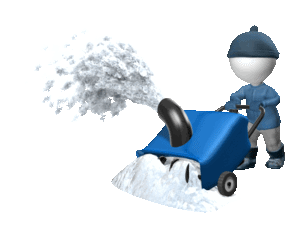The U.S. housing market of recent years has been tumultuous, marked by high housing prices and interest rates, and low inventory. Most renters in urban areas have never owned a home, but more than half have considered buying one. Read on to see what is going on with the housing market.
Read MoreWind – and the damage it can cause – affects every homeowner. As a result, most home insurance policies include some sort of wind damage deductible. But the source of that wind can vary depending on where you live.
Read MoreWe often take it for granted, but a water heater plays a vital role in our daily comfort. However, like any hardworking appliance, water heaters age and can develop problems. Recognizing the signs and understanding basic maintenance can save you from unexpected cold surprises and costly repairs
Read MoreYou can get your jewelry insured in one of two ways: through your property insurance or through a specialized jewelry insurer. If you go through your home, condo, or renters insurance, you should "schedule" your jewelry (also known as adding a rider to your policy) to make sure the piece is covered for its appraised value.
Read MoreInsurance companies may offer optional building code insurance coverage, also called "ordinance or law coverage," which can help cover the cost of bringing your home up to code if it's damaged by a covered peril. Local building codes may mandate upgrades or changes that weren't required when your home was originally built.
Read MoreOver the past few years, you may have noticed a sizeable increase in your homeowners insurance premiums. In reality, your policy's rates have likely increased due to several factors, and climate change is just one of them. However, climate change has played a significant role in how home insurance companies are calculating higher premium rates.
Read MoreVacant homes often carry more risk than meets the eye. From burst pipes and property theft to liability and squatter intrusion, a home left unoccupied for an extended period is exposed to a unique set of hazards, many of which may not be covered by a standard homeowners’ insurance policy.
Read MoreJust like leases have lessors, liens have lienors, or lienholders. The lienholder is the creditor to whom the debtor owes money. In some more specific cases, the lienholder may have given the debtor a loan to buy something, a car or a house, and their lien applies to that purchase until the loan is paid off.
Read MoreYour roof is more than just a covering; it's your home's primary defense against the elements. From scorching sun to torrential rain, your roof endures constant exposure, making regular maintenance critical. Failing to maintain its condition can lead to costly repairs, structural damage, and even compromise the interior of your home.
Read MoreIf a tree falls on your home, it could cause damage to your property or even injure someone. So you may be wondering if your homeowners insurance policy will cover the costs of tree removal and repairs. Read on to learn more about when homeowners insurance covers tree removal, and when it does not.
Read MoreThe American Veterinary Medical Association states there are nearly 90 million dogs living in U.S. households. About 4.5 million people are bitten by dogs each year, most of them children. Homeowners and renters insurance policies typically cover dog bite liability legal expenses, up to the liability limits. Some insurance companies will not insure homeowners who own certain breeds of dogs categorized as dangerous, such as pit bulls.
Read MoreHomeowners insurance may pay for hail damage to your roof, siding, and any other part of your property, minus your deductible. Hail is typically a covered peril on standard homeowners policies, but your policy may have a separate deductible for damage caused by hail — especially if you live in an area prone to hailstorms.
Read MoreOther Structures coverage provides financial protection for structures on your property that are separate from your main dwelling (i.e. not attached). Other Structures covered under Coverage B include: Detached garages, Sheds and workshops, Barns, Gazebos, etc.
Read MoreThunderstorms are most likely in the spring and summer months and during the afternoon and evening hours, but they can occur year-round and at all hours. To prepare and reduce damage to your home, follow these steps that include trimming trees, securing outdoor units, and installing protectors.
Read MoreWater backup can be a homeowner’s worst nightmare, causing significant property damage that can lead to costly repairs. The good news is that there are proactive measures you can take to safeguard your home against water damage.
Read MoreJust as you’d go to the doctor for an annual checkup or perform routine maintenance on your vehicle, having an annual insurance policy review is just as important. Reviewing your insurance coverage at least once a year is an excellent idea to help ensure that you, your family and your belongings are all protected.
Read MoreWinter brings cozy evenings by the fire, hot cocoa, and holiday cheer — but it may also bring harsh weather that can cause some serious damage to your home’s roof. Snow, ice, and constant temperature changes challenge even the sturdiest roofing systems, and without the right care, these seasonal stressors can turn small issues into big, pricey problems.
Read MoreThe ideal time to get ready for a snowstorm is long before one is in the forecast. Winter storms can bring cold temperatures, icy roads, power failures and a loss of communication services. Such conditions bring safety challenges, so you’ll want to plan ahead.
Read MoreIf you are a homeowner, or perhaps rent a home in which you are responsible for a certain level of maintenance, it is critical to winterize your home’s water system before the temperature drops to help ensure a winter season free from frozen pipes and potential water damage.
Read MoreHome inspections play an important role in the real estate process, especially for home buyers. It's the homeowner’s opportunity to uncover any hidden issues lurking beneath the surface of their dream home. A thorough home inspection can save homeowners from a financial nightmare down the road, and ensure a safe and sound property.
Read More



















